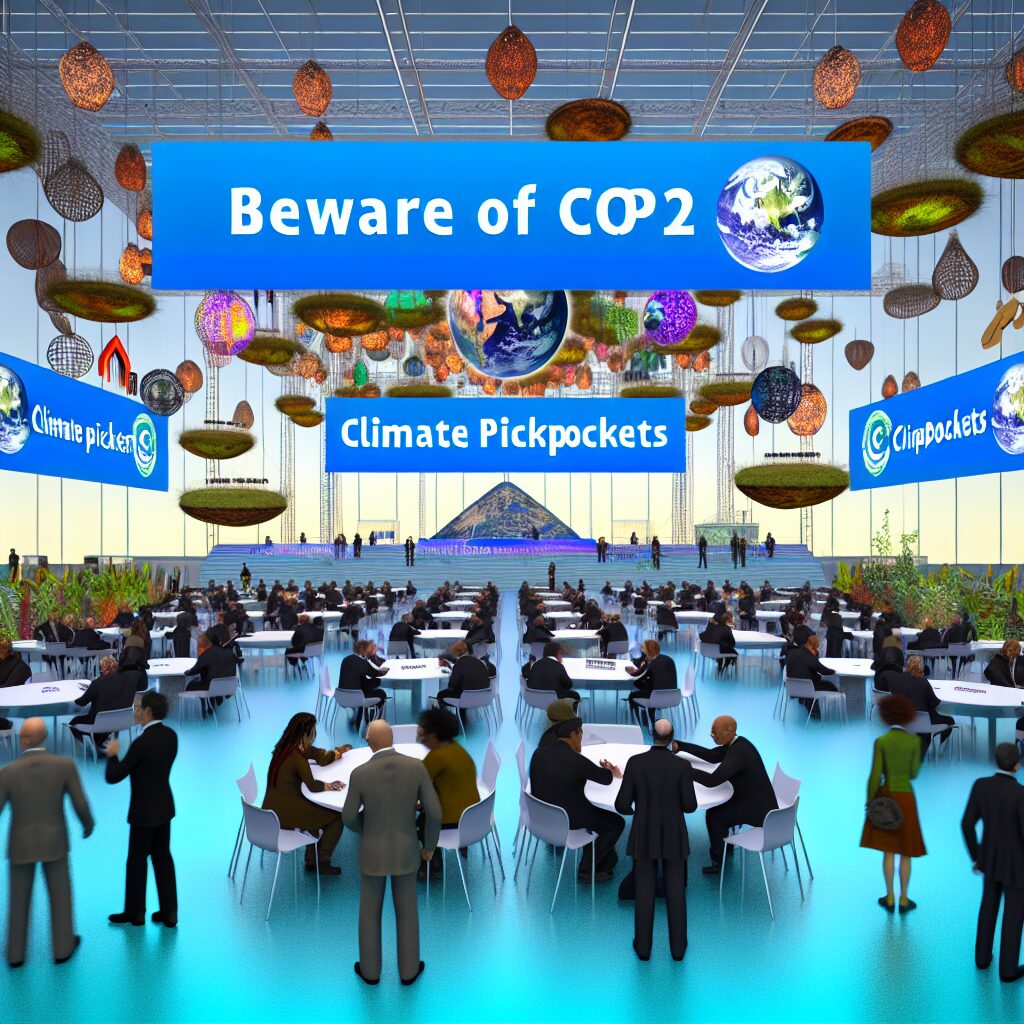Understanding the Risks of Climate Conferences: An NP View Analysis on COP29
Climate change is undeniably one of the most pressing challenges facing our planet today. As global leaders and environmental advocates prepare for the upcoming COP29 climate summit, the potential risks associated with such international gatherings are becoming increasingly evident. The concern centers on how these events can attract those seeking to exploit the situation beyond genuine efforts towards climate action.
The Nature of the Threat
International climate conferences like COP29 serve as crucial platforms for dialogue and decision-making. They aim to unify countries in their commitment to reducing emissions and mitigating climate impacts. However, it’s not uncommon for these summits to draw individuals and organizations who view them as opportunities for financial gain rather than platforms for meaningful change.
The Rise of ‘Climate Pickpockets’
The term “climate pickpockets” refers to entities that engage in practices more focused on extracting benefits—financial or otherwise—from climate initiatives rather than genuinely contributing to sustainability. This phenomenon manifests in several ways:
- Misappropriation of Funds: Organizations may redirect funds meant for climate action into administrative costs or projects that deliver minimal impact.
- Greenwashing: Companies might exaggerate their environmental efforts to enhance their public image without implementing substantial changes internally.
- Lobbying for Loopholes: Some industries invest heavily in lobbying activities to secure exemptions or favorable terms that align with their interests, often at the expense of real climate progress.
Why It Matters
Addressing these threats is essential to ensure that climate conferences remain effective and credible. When resources are misused or policies diluted by special interests, the very goals of these gatherings can be undermined. Failure to address the problem means missed opportunities for significant advancements in climate policy and practice.
Striving for Transparency and Accountability
To counteract these issues, there must be a strong emphasis on transparency and accountability within the framework of these climate discussions. Here are some strategies that could help:
- Enhanced Monitoring: Implement robust mechanisms to track the allocation and utilization of funds dedicated to climate initiatives.
- Strict Regulations: Enforce stricter guidelines to prevent greenwashing, ensuring companies’ claims about sustainability are both genuine and verifiable.
- Inclusive Dialogue: Engage a diverse range of stakeholders, including indigenous communities and local governments, to broaden the scope of perspectives and priorities represented in discussions.
The Role of Media and Public Awareness
Media outlets play a pivotal role in disseminating information about climate conferences and holding participants accountable. By reporting on both successes and shortcomings, the media can guide public discourse and pressure involved parties to adhere to their commitments.
Public awareness also serves as a powerful tool. When citizens are informed about what’s at stake and how decisions are made, they can advocate more effectively for appropriate actions and hold leaders accountable.
Looking Towards a More Effective COP29
As COP29 approaches, it’s crucial to reflect on past lessons and implement measures that fortify its legitimacy and effectiveness. While challenges persist, the potential for positive outcomes remains substantial if participants commit to transparency, accountability, and inclusivity.
Ultimately, addressing the threat of “climate pickpockets” requires collective vigilance and courage from all sectors involved. By prioritizing genuine climate action over exploitation, the world can steer closer towards sustainable solutions for current and future generations.
Analyzed and outlined by ChatGPT-4o, images by DALL·E 3.
Source
https://nationalpost.com/opinion/np-view-beware-the-cop29-climate-pickpockets

